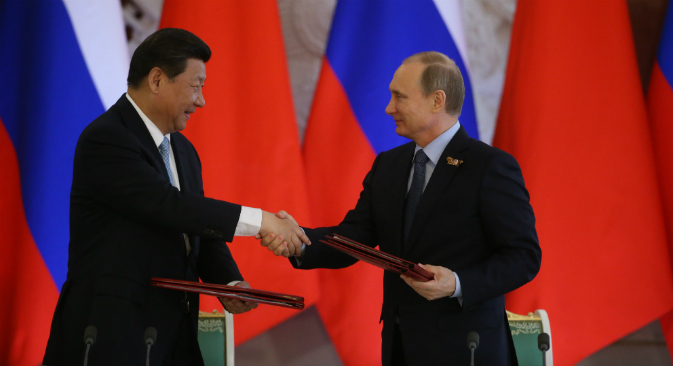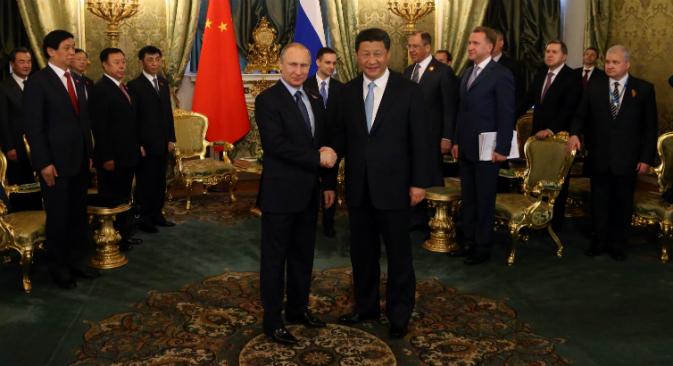Russia to participate in Silk Road project

Xi Jinping and Vladimir Putin in Moscow. Source: Konstantin Zavrazhin / RG
The largest integrated association in the former USSR - the Eurasian Economic Union, comprising of Russia, Kazakhstan, Belarus, Armenia and Kyrgyzstan - has signed a memorandum of understanding (MoU) on trade and economic cooperation with China.
The MoU calls for joint investment in the development of infrastructure within the framework of the Chinese Silk Road Economic Belt project, said Minister of Trade of the Eurasian Economic Committee Andrei Slepnev. The sides will give their consent to the first details of the agreement by the end of 2015.
The essence of the agreement
Slepnev says the agreement will differ from a WTO-style trade agreement in that it will not impose large-scale import taxes and that it will stress on cooperative investment projects. The future agreement will help the Eurasian Economic Union (EAEU) with its investments in the industrial and transportation sectors, as well as in services and infrastructure.
“China's current leader Xi Jinping is one of the creators of the new Silk Road project, having underlined its strategic importance even before assuming the country's highest post,” says Dmitri Bedenkov, Director of the Analysis Department at Russ-Invest. He believes the project has a strategic meaning first and foremost in the political sense.
Bedenkov explains that the idea of the Silk Road consists of the fact that the regions in which the project will be realized have substantial investment potential in their transportation infrastructure - about $7 trillion. However, most countries lack financing. For this the Chinese government is implementing a credit program for the project's member countries, both directly and through various institutions, including with the help of the Asia Infrastructure Investment Bank, whose co-founders include EAEU members Russia and Kazakhstan. “The effective development of EAEU structures calls for cooperation with the Silk Road project, not competition with it,” says Bedenkov.
The new course
Until now Russia has signed a similar trade agreement only with the European Union in 1997. “The Agreement on Partnership and Cooperation,” had a big impact on the development of bilateral relations. However, Ilya Balakirev, Chief Analyst at UFS IC believes, the EAEU and Silk Road projects are slightly different in their idea. The EAEU is a “centripetal” formation, while the Silk Road, as any road, is a “course” that is directed outwards.
“Basically, it is about the joint development of infrastructure and economic cooperation,” Balakirov says. “Now it is fundamental to start it in order to see the first results at least in some foreseeable future. It is still too early to start speaking about the real interpenetration of the projects.”
Dmitri Bedenkov remarks that substantive talks between China and the EAEU are due to start in July-August 2015. The main idea for EAEU in signing this agreement consists in decreasing competition with the larger Silk Road project, which from the start has been perceived in Russia as an example of Chinese expansion in Central Asian countries.
All rights reserved by Rossiyskaya Gazeta.
Subscribe
to our newsletter!
Get the week's best stories straight to your inbox
